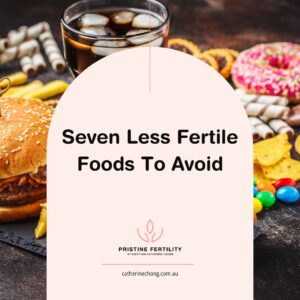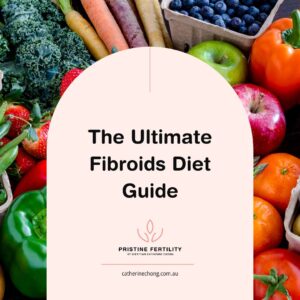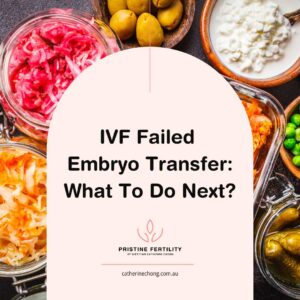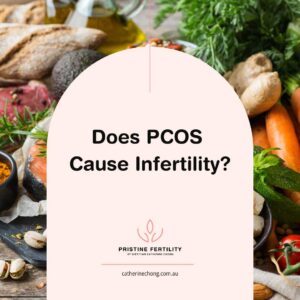Fibroids Diet: The Ultimate Guide For Symptom Relief
Are you tired of dealing with the uncomfortable symptoms of fibroids? Curious how fibroids can impact fertility? Do you want to manage these symptoms naturally and take control of your health?
This blog will explore how a fibroid diet can alleviate fibroid symptoms and enhance your overall quality of life.
Understanding Fibroids and Their Symptoms
Fibroids, or uterine leiomyomas, are non-cancerous growths in the uterus’s muscle tissue. They can vary in size, quantity, and location within the uterine cavity, leading to various symptoms. Common signs of fibroids include heavy or prolonged menstrual bleeding, pelvic pain or pressure, frequent urination, and constipation.
The impact of fibroids on fertility largely depends on their size, number, and location. Submucosal fibroids (that protrude into the uterine cavity) are most strongly associated with reduced fertility. In contrast, the impact of intramural fibroids is unclear for fertility, and subserosal fibroids are generally benign in this context.
Surgical removal of fibroids, particularly submucosal ones, can improve fertility outcomes for many women, but the benefits of such procedures and for other types of fibroids require further medical consultation. Always consult your medical provider for further assessment and treatment options.
In pregnancy, fibroids can lead to complications such as placental abruption and increased caesarean section rates. While the exact cause of fibroids remains unknown, factors such as hormonal imbalances, genetics, and obesity are believed to contribute to their development.
Fibroids Diet: Understanding and Managing Symptoms Effectively
Diet plays a pivotal role in managing fibroid symptoms effectively. While there’s no one-size-fits-all dietary plan for fibroids, incorporating certain foods and nutrients into your daily meals can alleviate symptoms and promote overall well-being.
A balanced diet around whole, nutrient-dense foods is paramount when dealing with fibroids. Fruits and vegetables should form the cornerstone of your diet due to their rich antioxidants and fibre content.
There’s compelling evidence to suggest that a diet rich in fruits and vegetables can significantly lower the risk of developing uterine myomas. Specifically, women consuming at least four servings of fruits or vegetables daily were at lower risk than those with only one serving per day. Intriguingly, the protective impact was more pronounced for fruits, mainly citrus fruits, than vegetables.
Understanding Key Nutrients in a Fibroid Diet
Certain nutrients have been shown to affect fibroid management positively. Here are two essential nutrients to focus on:
1. Vitamin D
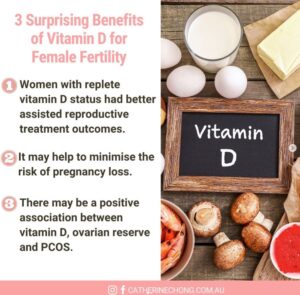
Research has found a link between low vitamin D levels and a higher risk of developing fibroids. While vitamin D supplementation might reduce uterine fibroid size, its clinical effectiveness in women with fibroids is uncertain due to limited research and varying study criteria. It’s important to monitor your vitamin D levels through blood tests and consider supplementation if deficiency is detected.
2. Omega-3 Fatty Acids
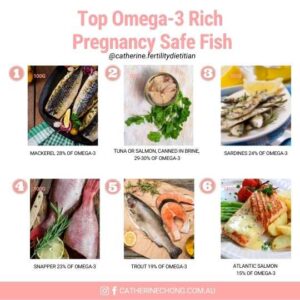
A recent study focused on premenopausal women and explored the association between dietary fat intake, erythrocyte fatty acid levels, and the risk of developing fibroids.
While no direct link was found between general dietary fats and fibroid risk, the study revealed that high levels of n-3 polyunsaturated fatty acids (found in fish and flaxseed) might reduce the risk of fibroids.
Conversely, trans fats (common in processed foods) were associated with an increased risk. These findings underscore the importance of a fibroid diet rich in healthy fats to mitigate fibroid growth potentially.
Power Foods for a Fibroids Diet: What to Eat
Focus on incorporating foods that provide maximum health benefits. Here are some foods to include:
- Leafy Greens: Spinach, kale, and collard greens are rich in vitamins, minerals, and fibre. They help regulate hormone levels and reduce inflammation.
- Berries: Strawberries, blueberries, and raspberries are packed with antioxidants that combat inflammation and enhance overall well-being.
- Kiwifruit and Carrot: May play a role in limiting fibroid risk and reducing their formation.
- Cruciferous Vegetables: Broccoli, cauliflower, and Brussels sprouts contain compounds that assist the liver in metabolising estrogen, reducing its impact on fibroid growth.
- Legumes: Beans, lentils, and chickpeas are excellent sources of fibre and protein. They regulate blood sugar levels and promote healthy digestion.
- Nuts and Seeds: Almonds, walnuts, flaxseeds, and chia seeds are rich in essential nutrients and healthy fats. They support hormone balance and reduce inflammation.
- Omega-3 Rich Fish: Salmon, mackerel, and sardines are high in omega-3 fatty acids, which help reduce inflammation and promote hormonal balance, potentially lowering fibroid risk.
The Bottom Line
- Your diet plays a vital role in managing fibroid symptoms. Incorporate nutrient-rich foods to reduce inflammation and promote hormonal balance.
- Vitamin D and omega-3 fatty acids are vital nutrients that can alleviate fibroids symptoms and boost fertility.
- To learn more about the five top fertility-boosting foods, dive in more in previous blog posts here.

